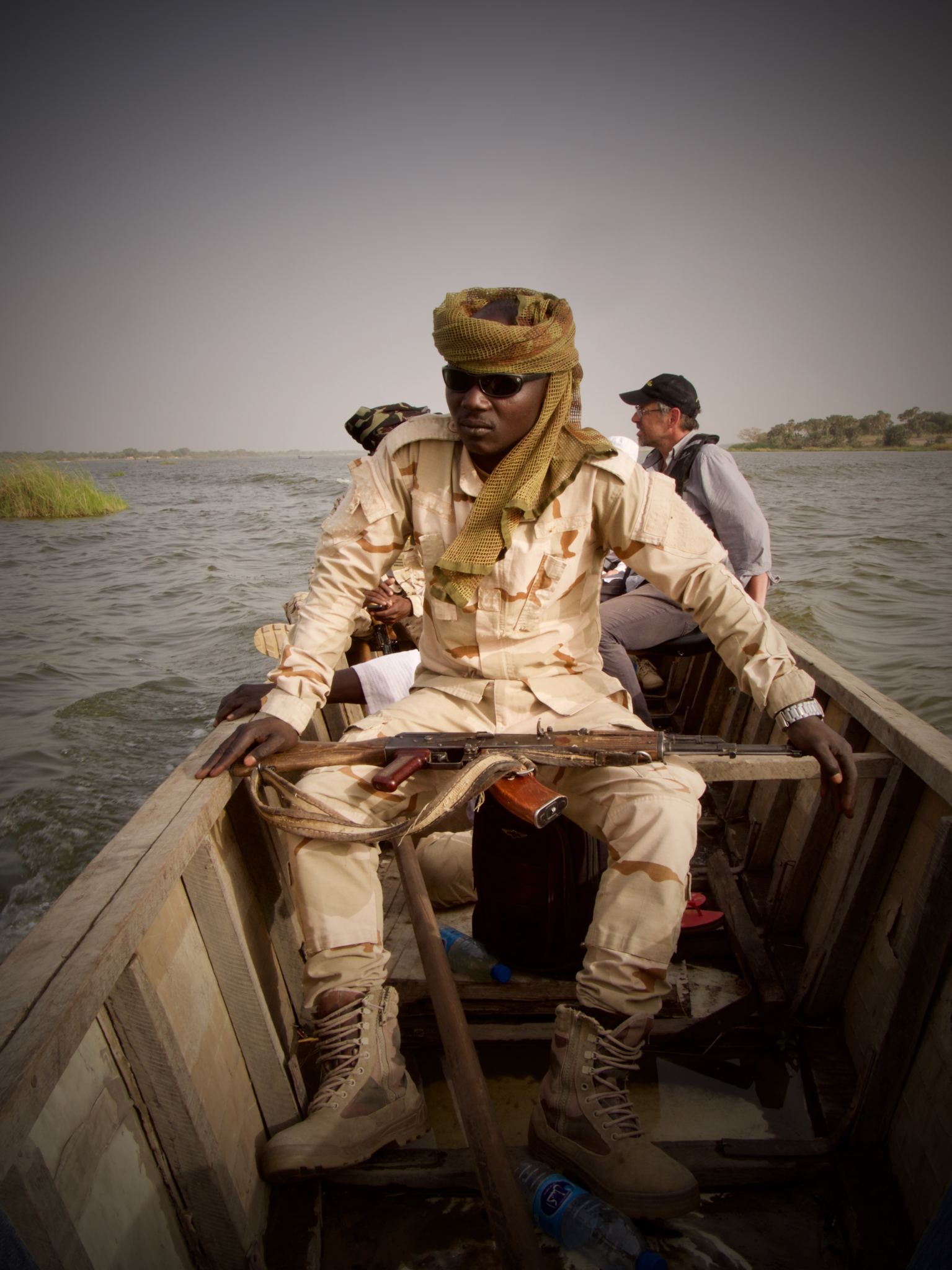
Armed security guards travel across the lake near Baga Sola, Chad (©Arno Trümper/adelphi)
Weak governance was a core driver of the conflict. Strengthening governance requires support to provide quality social service delivery, tackle corruption and invest in the expansion of governance at local levels. Institutional development provides opportunities to be climate sensitive. For example, local planning processes can be used to facilitate the resolution of tensions around land allocation for housing and agriculture or livestock production and to reflect changes in demographics. Building in climate assessments that integrate analysis of conflict, gender and social exclusion dynamics into planning processes can serve as an early warning system to areas most at risk from climate change.
Militarised responses have been a main tactic of governments in tackling the violence in the region so far. By and large, the result has been the continued failure to defeat armed opposition groups and achieve peace while communities around the Lake continue to suffer. A review of and shift in tactics by the various governments is required to understand how they can better combat armed opposition groups without further undermining social cohesion and livelihoods. This requires better efforts to win the ‘hearts and minds’ of affected communities through actions which promote, for example, better service provision, safe and equitable access to natural resources and access to justice.
